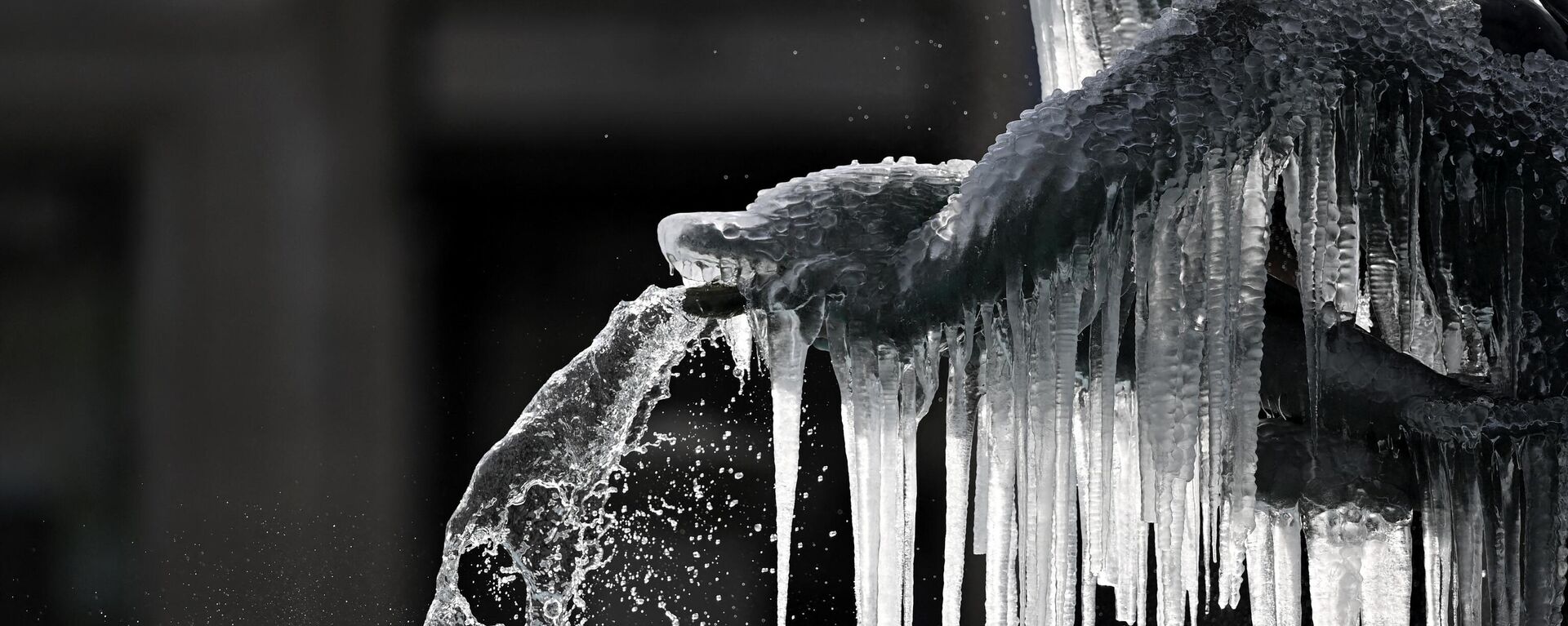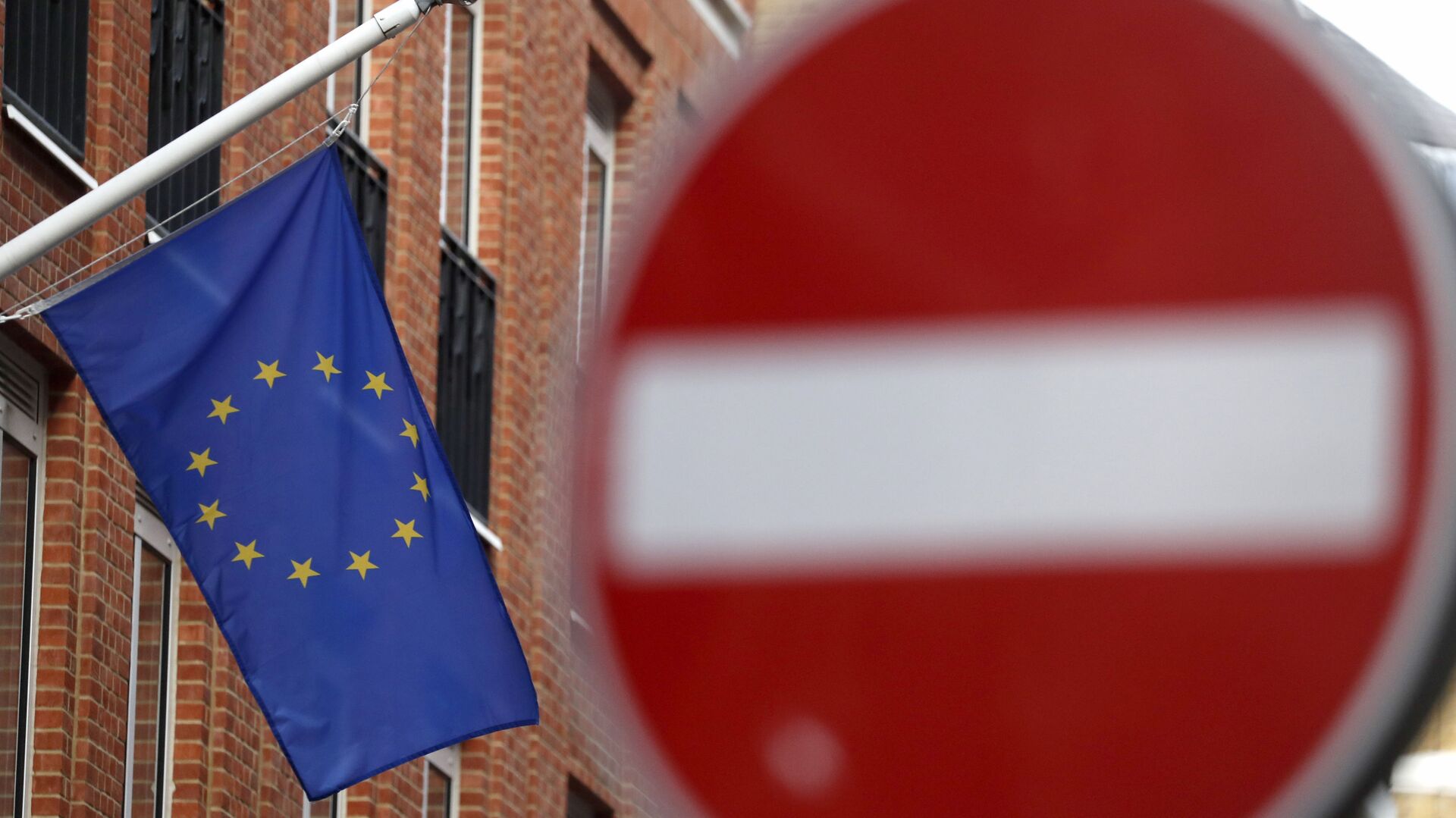https://sputnikglobe.com/20221216/eus-ninth-package-of-anti-russian-sanctions-who-locked-horns-over-the-document--1105521697.html
EU’s Ninth Package of Anti-Russian Sanctions: Who Locked Horns Over the Document?
EU’s Ninth Package of Anti-Russian Sanctions: Who Locked Horns Over the Document?
Sputnik International
Since Russia launched its special military operation in Ukraine on February 24, western countries have rolled out a total of nine packages of sanctions against... 16.12.2022, Sputnik International
2022-12-16T14:44+0000
2022-12-16T14:44+0000
2023-04-12T17:04+0000
russia
hungary
poland
sanctions
package
lithuania
sputnik explains
european union (eu)
https://cdn1.img.sputnikglobe.com/img/07e4/0c/07/1081383724_0:114:3237:1934_1920x0_80_0_0_89392f462662caf248979f6f29052366.jpg
The EU spent weeks trying to rectify discrepancies over the ninth package of sanctions against Russia, a document that was finally adopted on Friday. Let’s take a look into who locked horns with Brussels and voiced displeasure with the package.‘No’ to Three Russian Ministers on Black ListBudapest insisted that the Russian ministers of energy, sports and health should not be included in the ninth package of EU sanctions against Moscow, a European media outlet claimed citing unnamed sources.The ministers are Nikolai Shulginov, Oleg Matytsin and Mikhail Murashko, respectively.The move reportedly came as a last-ditch veto threat that was previously dubbed "political corruption" by an unnamed EU diplomat.Warsaw Needs ‘Transparent Sanctions’Poland also locked horns with Brussels over the ninth package as Prime Minister Mateusz Morawiecki explained his country's position on the matter by insisting that the EU needs "transparent and tough sanctions that reduce Russia's financial capabilities."According to Morawiecki, "Russian lobbyists are active in Brussels, and their goal is to make the sanctions easier." In particular, Poland is categorically against removing fertilizer tycoon Viatcheslav Moshe Kantor, who Warsaw claims is "responsible for Russia's economic interests," from the ninth package’s bblacklistEchoing PolandOn Thursday, Lithuanian Foreign Minister Gabrielius Landsbergis told reporters that the proposed easing of food security measures by the European Commission has the potential to open up opportunities for sanctioned Russian oligarchs to increase their wealth.He referred to the ninth package deal, which in particular stipulated that individual EU countries will be free to unfreeze Russian magnates’ money if it's "strictly necessary" to expedite shipments of food and fertilizers, especially to Africa.EU Heavyweights Want Softer StanceEU heavyweights France and Germany, supported by the Netherlands, Belgium, Italy, Portugal, and Spain, however, called for the so-called “fertilizer thaw” to help maintain global food security.Despite Poland’s and Lithuania’s opposition, a consensus was clinched between the two and other EU members on the ninth package, which envisages that while six Russian fertilizer and chemical moguls, including Kantor, will "still be the likely beneficiaries of any derogations, their names will not explicitly be referenced in a new EU fertilizer white-list", according to the European media outlet.
https://sputnikglobe.com/20221216/moscow-new-sanctions-against-russia-undermine-interests-of-eu-states-1105509974.html
russia
hungary
poland
lithuania
Sputnik International
feedback@sputniknews.com
+74956456601
MIA „Rosiya Segodnya“
2022
Oleg Burunov
https://cdn1.img.sputnikglobe.com/img/07e4/09/0b/1080424846_0:0:2048:2048_100x100_80_0_0_3d7b461f8a98586fa3fe739930816aea.jpg
Oleg Burunov
https://cdn1.img.sputnikglobe.com/img/07e4/09/0b/1080424846_0:0:2048:2048_100x100_80_0_0_3d7b461f8a98586fa3fe739930816aea.jpg
News
en_EN
Sputnik International
feedback@sputniknews.com
+74956456601
MIA „Rosiya Segodnya“
Sputnik International
feedback@sputniknews.com
+74956456601
MIA „Rosiya Segodnya“
Oleg Burunov
https://cdn1.img.sputnikglobe.com/img/07e4/09/0b/1080424846_0:0:2048:2048_100x100_80_0_0_3d7b461f8a98586fa3fe739930816aea.jpg
eu's ninth package of sanctions against russia, poland and hungary locked horns with brussels over eu's ninth package of sanctions against russia, moscow's special military operation in ukraine
eu's ninth package of sanctions against russia, poland and hungary locked horns with brussels over eu's ninth package of sanctions against russia, moscow's special military operation in ukraine
EU’s Ninth Package of Anti-Russian Sanctions: Who Locked Horns Over the Document?
14:44 GMT 16.12.2022 (Updated: 17:04 GMT 12.04.2023) Since Russia launched its special military operation in Ukraine on February 24, western countries have rolled out a total of nine packages of sanctions against Moscow.
The EU spent weeks trying to rectify discrepancies over
the ninth package of sanctions against Russia, a document that was finally adopted on Friday.
Let’s take a look into who locked horns with Brussels and voiced displeasure with the package.
‘No’ to Three Russian Ministers on Black List
Budapest insisted that the Russian ministers of energy, sports and health should not be included in the ninth package of EU sanctions against Moscow, a European media outlet claimed citing unnamed sources.
The ministers are Nikolai Shulginov, Oleg Matytsin and Mikhail Murashko, respectively.
The outlet argued that “forever Russia-friendly Hungary had insisted on striking the names of the three individuals off the ninth package’s blacklist."
The move reportedly came as a last-ditch veto threat that was previously dubbed "political corruption" by an unnamed EU diplomat.
Warsaw Needs ‘Transparent Sanctions’
Poland also locked horns with Brussels over the ninth package as Prime Minister Mateusz Morawiecki explained his country's position on the matter by insisting that the EU needs "transparent and tough sanctions that reduce Russia's financial capabilities."

16 December 2022, 07:08 GMT
According to Morawiecki, "Russian lobbyists are active in Brussels, and their goal is to make the sanctions easier." In particular, Poland is categorically against removing fertilizer tycoon Viatcheslav Moshe Kantor, who Warsaw claims is "responsible for Russia's economic interests," from the ninth package’s bblacklist
“We are against it. The insinuations that Poland is in favor of easing sanctions have no basis. Poland is in favor of strengthening them,” the prime minister said.
On Thursday, Lithuanian Foreign Minister
Gabrielius Landsbergis told reporters that the proposed easing of food security measures by
the European Commission has the potential to open up opportunities for sanctioned Russian oligarchs to increase their wealth.
He referred to the ninth package deal, which in particular stipulated that individual EU countries will be free to unfreeze Russian magnates’ money if it's "strictly necessary" to expedite shipments of food and fertilizers, especially to Africa.
EU Heavyweights Want Softer Stance
EU heavyweights France and Germany, supported by the Netherlands, Belgium, Italy, Portugal, and Spain, however, called for the so-called “fertilizer thaw” to help maintain global food security.
"We cannot risk famine and food shortages over [EU] sanctions rules which are unworkable for port authorities," an unnamed source told a European media outlet.
Despite Poland’s and Lithuania’s opposition, a consensus was clinched between the two and other EU members on
the ninth package, which envisages that while six Russian fertilizer and chemical moguls, including
Kantor, will "still be the likely beneficiaries of any derogations, their names will not explicitly be referenced in a new EU fertilizer white-list", according to the European media outlet.





